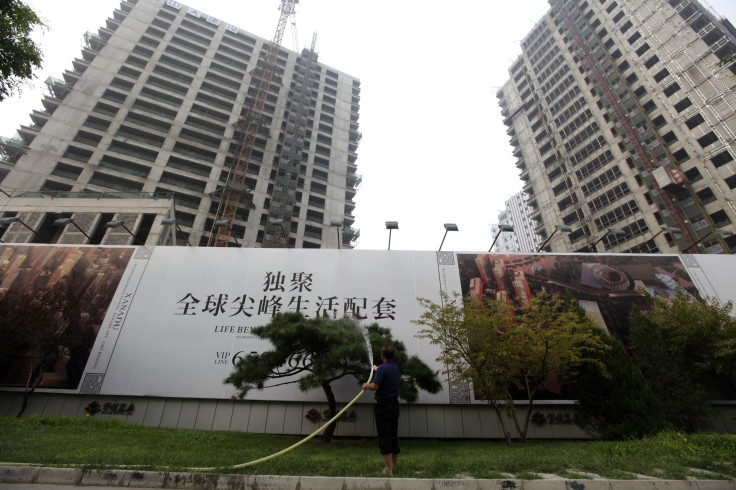Why China's Leading Property Developer Is Giving Huge Discounts To Taobao Shoppers

In an unusual cross-promotion, China Vanke Co., the country’s largest property developer, is offering discounts of 50,000 to 2 million yuan ($8,125 to $325,000) to homebuyers who spent a similar sum on Alibaba’s Taobao, China’s largest e-commerce platform. The promotion, which began Sunday and will last through the end of September, will affect buyers in 23 Vanke developments across China.
At first glance, the promotion is little more than a publicity stunt involving two of China’s highest-profile companies. But Vanke’s involvement with Alibaba also reflects the intersection of two disparate trends in China. One is how Beijing’s attempt to cool its housing market has forced property developers to get creative in luring homebuyers. The second is the growing significance of e-commerce platforms, the most dominant of which is Taobao, in China’s economy.
For years, property developers played a major role in facilitating China’s real estate boom, constructing rows of modern apartment complexes for the growing urban middle class. But last year, fearful a housing bubble posed a threat to the economy, Beijing tightened credit, raised mortgage requirements and restricted buyers’ ability to own multiple properties. The moves worked. A sample of 70 Chinese cities surveyed in June indicated housing prices fell in 55 of them, the sharpest drop in five years. Property developers, fueled by cheap credit provided by local governments, felt the pinch, in turn reducing purchases of commodities like steel and cement that play a central role in China’s economy.
Although Vanke has managed to avoid a downturn -- the company reported profits up 5.6 percent in the first half of 2014 -- the company has still aggressively sought affiliate deals with a range of Chinese Internet companies. And Taobao -- the world’s 9th most popular site, according to Alexa.com -- in many ways provides an ideal partner for the property development giant.
Although high-end retailers have had a foothold in China for decades, comparatively few companies have a brick-and-mortar presence outside the country’s major cities, said Christine Lu, the CEO of Affinity China and an expert on Chinese business.
“Offline shopping is very limited for luxury goods in China,” she said. “In the same way that many Chinese people used a cell phone before a land line, many people also shop for luxury brands online before setting foot in the store.”
Taobao, eager to shed its old image as a chaotic marketplace rife with forgery and counterfeit goods, has sought the cachet of luxury brands like Burberry, the British clothing and accessory company that maintains a virtual shop on TMall, a Taobao spinoff site. This model may explain the e-commerce site’s interest in Vanke.
“Taobao wants to get away from its old reputation as a low-end, low-price, chaotic marketplace full of fakes,” says Avery Booker, a partner at China Luxury Advisors.
But Taobao’s most important asset may be data. Lu said each of the millions of daily transactions on Taobao provides Alibaba, its parent company, with precise information about its customer base, which the company in turn can sell to businesses looking for accurate marketing data.
“When someone ends up buying something on Taobao, the company can segment this information by geography, gender and other categories. This is information that companies find very valuable,” she said. “I’m sure Taobao wouldn’t be involved in this promotion if there wasn’t something in it for them.”
© Copyright IBTimes 2024. All rights reserved.





















